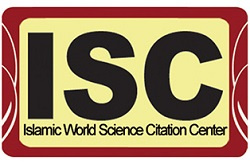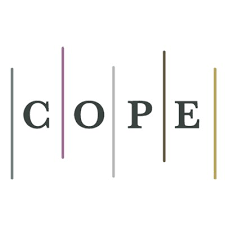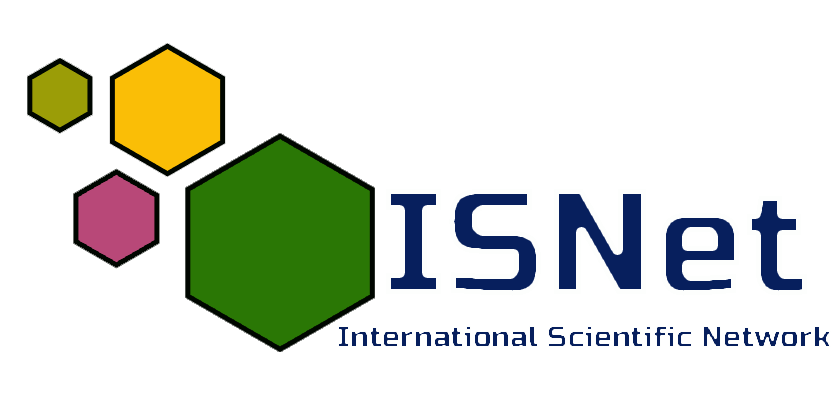Community Leaders and Their Influence on Tourism Development in Bali
DOI:
https://doi.org/10.52547/ijimes.2.2.83DOR:
https://dorl.net/dor/20.1001.1.27832678.2022.2.2.7.6Keywords:
Tourism, Bali, Community Leader, Social Capital, TrustAbstract
Purpose: This paper aims to identify and explain the role of community leaders in the development of tourism in Bali. Bali, which is known as a world tourism destination, is able to develop well and cannot be separated from the participation of the community and the figures in it. The role of community leaders in tourism development in their respective areas is interesting to observe, with the aim of understanding how the capital used by the figures synergizes with the community in developing a destination.
Methodology: The data collection was done by observation and interviews and was analyzed using the cultural studies approach, especially the deconstruction method. Deconstruction is aimed at causing a hierarchical order that organizes the text.
Findings: The results of the data analysis were presented in a descriptive and narrative form Social capital and cultural capital play an important role in the development of a region into a tourism destination area. Based on direct observations, it was found that some areas like Sanur, Ubud, Pemuteran, and Munduk could develop tourism with a sustainable and community-based concept. In four areas, based on observations and in-depth interviews, tourism in the four places could develop thanks to pioneers who were at the same time community leaders admired by the communities. This phenomenon is interesting to be examined, that is, from the community perspective the role of social and cultural capital in practice has a higher value than economic capital. Thus, this needs to be understood and important to be investigated, especially in the effort of developing sustainable tourism at the village level.
Originality/Value: Based on the capital needed in tourism development, cultural capital is the very crucial one that functions to influence people to participate in and support the tourism activities developed in an area
Downloads
References
Scott, J. C. (1981). Moral Ekonomi Petani: Pergolakan dan Subsistensi di Asia Tenggara. Basari H. Penerjemah. LP3ES. Terjemahan dari: The Moral Economiy of Peasant. Rebelion and Subsistence in Southeast Asia. Jakarta.
Widiastini, N. M. A. (2016). Pedagang Acung Sebagai Basis Ekonomi Keluarga di Desa Batur Tengah, Kawasan Pariwisata Kintamani, Bali. disertasi. Denpasar: Program Studi Doktor Kajian Budaya.
Bourdieu, P. (2010). Arena produksi kultural: sebuah kajian sosiologi budaya. Yogyakarta: Kreasi Wacana.
Widiastini, N. M. A. (2008). Pemanfaatan Puri Ubud sebagai Objek dan Daya Tarik Wisata serta Implikasinya terhadap Desa Pekraman Ubud, Gianyar, Bali (Doctoral dissertation, Thesis. Program Studi Kajian Pariwisata, Program Magister, Program Pascasarjana, Universitas Udayana, Denpasar).
K. Plummer, Sosiologi the Basic. Jakarta: Rajawali Pers, 2011.
Brown, K. M. (2001). New Voice, same story?: social entrepreneurship and active social capital formation.[Originally given as a paper to the research conference,'Third Sector as Voice', UTS, Sydney, June 2001.]. Third Sector Review, 7(2), 7-22.
Doxey, G. V. (1975, September). A causation theory of visitor-resident irritants: Methodology and research inferences. In Travel and tourism research associations sixth annual conference proceedings (pp. 195-98).
Wirawan, D. I. (2012). Teori-teori Sosial dalam Tiga Paradigma: fakta sosial, definisi sosial, dan perilaku sosial. Kencana.
Nunkoo, R., & Ramkissoon, H. (2012). Power, trust, social exchange and community support. Annals of tourism research, 39(2), 997-1023.
Kartono, K. (2005). Patologi Sosial, Jakarta: Raja Grafindo Persada.
Bahransyaf, D., Yuliah, D., & Suhendi, A. (2004). Pengembangan ketahanan sosial masyarakat melalui sistem jaminan sosial berbasis masyarakat. Departemen Sosial RI, Badan Pelatihan dan Pengembangan Sosial, Pusat Pengembangan Ketahanan Sosial Masyarakat.
Deggs, D. M., & Miller, M. T. (2013). Community college and community leader expectations of the “village”. Community College Journal of Research and Practice, 37(6), 424-432.
Durango-Cordero, J., Saqalli, M., Laplanche, C., Locquet, M., & Elger, A. (2018). Spatial analysis of accidental oil spills using heterogeneous data: A case study from the North-Eastern Ecuadorian Amazon. Sustainability, 10(12), 4719.
Butler, R. W. (2006). The concept of a tourist area cycle of evolution: implications for management of resources. The tourism area life cycle, 1(1), 3-12.
Stein, S. M., & Harper, T. L. (2003). Power, trust, and planning. Journal of planning education and research, 23(2), 125-139.
Norris, C. (2017). Membongkar Teori Dekonstruksi Jacques Derrida, terj. Inyak Ridwan Muzir. Yogyakarta: ar-Ruzz Media.
Bhandari, H., & Yasunobu, K. (2009). What is social capital? A comprehensive review of the concept. Asian Journal of Social Science, 37(3), 480-510.
Ningrum, M. E. (2020). Peranan Komunikasi Internal di Lingkungan Kerja. Jurnal Industri Elektro dan Penerbangan, 3(1).
Edkins, J., Williams, N. V., & Radike, T. (2010). Teori-teori Kritis Menantang Pandangan Utama Studi Politik Internasional. Yogyakarta: Pustaka Pelajar.
Martiskainen, M. (2017). The role of community leadership in the development of grassroots innovations. Environmental Innovation and Societal Transitions, 22, 78-89.
R. Nunkoo and L. . S. Stephen, Trust, Tourism Development and Planning. London: Routledge, 2014.
Ellingsen, M. B. (2015). The Trust Paradox An inquiry into the core of social life.
Muhni, D. A. I. (1988). Moral dan Religi Menurut Emile Durkheim dan Henri Bergson (Doctoral dissertation, Universitas Gadjah Mada).
Allen, N. J., Pickering, W. S., and W. W. Miller, 1975. Durkheim’s Sociology of Religion. London: Routledge, 1975.
Widiastini, N. M. A., Rahmawati, P. I., Prayudi, M. A., Dantes, I. G. R., & Wirasetia, P. A. (2021, November). Preparing Guest Room for Tourists in Sidetapa Village, Buleleng, Bali. In 6th International Conference on Tourism, Economics, Accounting, Management, and Social Science (TEAMS 2021) (pp. 12-21). Atlantis Press.
Gunawan, J. S., & Solang, P. D. (2013). Organizational citizenship behavior yang berpengaruh pada kinerja karyawan dan kepuasan konsumen di hotel sheraton surabaya. Jurnal Hospitality dan Manajemen Jasa, 1(2), 120-133.
Pitaloka, E., & Sofia, I. P. (2014). The affect of work environment, job satisfaction, organization commitment on OCB of internal auditors. International Journal of Business, Economics and Law, 5(2), 10-18.
Martono, N. (2012). Sosiologi perubahan sosial: Perspektif klasik, modern, posmodern, dan poskolonial (sampel halaman). RajaGrafindo Persada Jakarta.
Anom, I. P., Suryasih, I. A., Nugroho, S., & Mahagangga, I. G. A. O. (2017). Turismemorfosis: Tahapan selama seratus tahun perkembangan dan prediksi pariwisata Bali. Jurnal Kajian Bali (Journal of Bali Studies), 7(2), 59-80.
Munandar, A. A. (2005). Istana dewa pulau dewata: makna puri Bali abad ke-14-19. Komunitas Bambu.
Kaneko, E. (1970). Robert von Heine-Geldern: 1885-1968. Asian Perspectives, 1-10.
Nordholt, H. S., Prasetyo, A. B., & Hoogenboom, I. (2010). Bali: benteng terbuka 1995-2005: otonomi daerah, demokrasi elektoral, dan identitas-identitas defensif. Pustaka Larasan.
Jiwantara, F. A. (2020). Reformasi Peraturan Dan Kebijakan Pengadaan Tanah Untuk Kepentingan Umum. Media Keadilan: Jurnal Ilmu Hukum, 11(2), 169-190.
Nasution, M. A. (2005). Isu-isu kelautan: dari kemiskinan hingga bajak laut. Pustaka Pelajar.
Hasbullah, J. (2006). Social capital: Menuju keunggulan budaya manusia Indonesia. MR-United Press.
Ritzer, G. (2011). Sosiologi Ilmu Pengetahuan Berparadigma Ganda. Penerjemah Alimandan.
Anwar, R. K., Lusiana, E., & Rahman, M. T. (2018). Organic Solidarity of Community Classic Bicycle in Tasikmalaya.
Smith, K. S. (2014). Émile Durkheim and the collective consciousness of society: A study in criminology (Vol. 1). Anthem Press.
Suwena, I. K., SUWENA, I. K., Arismayanti, N. K., Par, S. S. T., Par, M., & Arismayanti, N. K. (2017). Green Tourism Development as a Community Empowerment Efforts in Pemuteran Village, Buleleng, Bali. Udayana Journal of Social, Sciences, and Humanities, 1(1).
Rosalina, P. D. (2017). The implementation of Hindu philosophy “tri kaya parisudha” for sustainable tourism in Munduk village, North Bali. Jurnal Master Pariwisata (JUMPA), 3(2), 223-327.
Published
How to Cite
Issue
Section
License
Copyright (c) 2022 Ni Made Ary Widiastini, I Gede Mudana, I Ketut Sida Arsa, Ni Luh Putu Agustini Karta

This work is licensed under a Creative Commons Attribution 4.0 International License.












